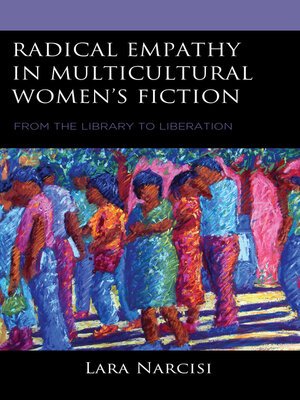Law Enforcement - Perpetrated Homicides
ebook ∣ Accidents to Murder · Policing Perspectives and Challenges in the Twenty-First Century
By Lara Narcisi

Sign up to save your library
With an OverDrive account, you can save your favorite libraries for at-a-glance information about availability. Find out more about OverDrive accounts.
Find this title in Libby, the library reading app by OverDrive.



Search for a digital library with this title
Title found at these libraries:
| Library Name | Distance |
|---|---|
| Loading... |
Fiction provides the possibility for radical empathy by connecting us with strangers and Radical Empathy in Multicultural Women's Fiction: From the Library to Liberation both analyzes and embodies this phenomenon by putting women novelists of color in conversation with one another. Foregrounding the growing importance of intersectionality studies, this book considers how race, gender, and class interact for each author. In our increasingly fragmented national dialogue, this approach is unique and timely, demonstrating how novels can transform how we understand ourselves and act towards others.
Each chapter compares a contemporary female author to an earlier, canonical author of her ethnic background, depicting the dialogues that authors have across the decades. Each conversation focuses on an intersectional question: How has culturally-enforced silence impacted Asian women writers? How can the American road trip narrative provide Black men access to their pasts? How do poverty and gentrification impact Chicana coming-of-age stories? Finally, the book facilitates a dialogue across ethnic categories, considering what commonalities all women writers of color share in the contemporary United States, and how their conversations can reach and impact readers to take the crucial step from empathy to action in their own communities.
Each chapter compares a contemporary female author to an earlier, canonical author of her ethnic background, depicting the dialogues that authors have across the decades. Each conversation focuses on an intersectional question: How has culturally-enforced silence impacted Asian women writers? How can the American road trip narrative provide Black men access to their pasts? How do poverty and gentrification impact Chicana coming-of-age stories? Finally, the book facilitates a dialogue across ethnic categories, considering what commonalities all women writers of color share in the contemporary United States, and how their conversations can reach and impact readers to take the crucial step from empathy to action in their own communities.







